- Home
- Sonya Hartnett
The Ghost's Child Page 2
The Ghost's Child Read online
Page 2
The only person who called Maddy by her weighty Matilda-Victoria-Adelaide name was her mother, of whom Maddy was also afraid. As with so many grown-up ladies, Mama seemed to teeter forever on the crumbly threshold of fury. When she was furious, she did not shriek or hurl shoes. Instead she slivered her eyes and turned away, as if her daughter were the most disappointing, most disagreeable, most time-wasting creature in the world. Like her father, Maddy’s mother had a job, which was to fret the fate of mites in Foundling Hospitals. The mites were not bugs, but children; the children lived in Hospitals, but not because they were sick. In fact they were too healthy, and their numbers forever increased. Maddy found it all very confusing, but for Mama it was endlessly diverting. She organized money-raising occasions for herself and her friends – trips to the theatre and races, card games, dress-ups, progressive dinners and guest speakers – at which the mysterious mites and their doctorless Hospitals were rarely mentioned and never encountered, yet over whose fates there was nonetheless much fretting done. When she was little, Matilda felt some resentment towards these mites that Mama loved, and thought they should make their own mothers love them, and not steal all the love out of hers.
Once a month Mama stayed overnight in the city, bringing back from its fashionable stores hats and ties and furry cloaks for her husband and daughter so they would always be above criticism. But for her regular forays to the metropolis, Mama would have speedily expired from fresh air and ennui. “It’s fine to be a big fish in a small pond,” she told her daughter, waving a dismissive hand at the shops and people of their town, “but give this fish the ocean any day.” In fact their house was only a short walk from the ocean, but Mama never visited it because the salt played havoc with her hair. As a child, Maddy thought her mother was beautiful, like a unicorn or an ivory carving. Mama laughed with fluty lightness, the way a handkerchief falls. Her nose was as prettily pinched as a thorn. Maddy loved to contemplate her; though not to touch or talk to her. Mama, as Maddy knew her, was blazing and reposeful, chilling and torrid. She was the four seasons put together inside a person. It was hard to know what to say to somebody like that.
When Maddy was home from school, the family ate supper at one end of the shiny dining table. Her parents asked her questions and listened to her, and Maddy tried to be interesting and worthy of their regard. Though she knew she was a small thing in their busy lives, she also knew they loved her as much as they could manage under the circumstances. Maddy had her drawbacks, and at the dinner table she was always heavily aware of them. She wasn’t a doll, something Mama could pet and play with; clothes and parties confused her. She wasn’t a boy, someone who could stand in the iron man’s shadow and learn to be frightening like him. Maddy was, in fact, an overlookable child, doubtful and reluctant in her dealings with others, mousey as a mouse. She was easily hurt, deceived and dispirited. Left to her own devices, however, she was inventive and independent, and smart for her age. Luckily, she was smart enough to realize that her mother and father loved her as much as she needed them to. She wasn’t necessary, not like money or the swish city stores: but she did belong, she had a place between her parents, and they would not let her go. They would not put her in a castaway bag and send her off to the poor. At home Maddy was safe, and she knew it. Just the same, she was a worried child.
The things that worried Maddy worry many children, although each believes that he or she is alone with their woes. She was, for a start, so diffident. There were countless waifish children in town, and at boarding school there were a hundred garrulous girls: but Maddy did not know the complex magic that turns an acquaintance into a friend, so no one was her particular confederate. Nobody bullied her or called her names – but many thought she was a snob, because shyness often looks like haughtiness. Others might have liked to befriend her, yet could find no way of speaking to her. She always seemed as nervy as a foal when approached. Mostly, other children rejected her on the grounds that she was strange, and strangeness among children is despised. In truth, Maddy was strange, the way an octopus or an anemone or a goat’s eye is strange. She had a perfect right to exist, and she was perfectly made in every way … but she seemed not-quite-right for the world, as if she’d been raised by monkeys or wolves. Part of her longed to be scathing and poised, to whisper in ears and skip a long rope and receive perfumed invitations to parties – and part of her couldn’t bear the idea. In her heart, Maddy knew she was good, and that difference is rare and special: the problem was that no one else seemed to think the same. And so she came to understand that she stood apart, and it made her feel important, and unwantedly sad.
She was happiest at home, by herself, on long weekends and holidays. She played with her dolls for days at a time, deep inside their intricate lives of deadly rivalry and adoration. On creamy summer evenings she walked to the beach, stepping through rockpools with her boots around her neck. She watched crabs digging their evening homes, knelt on the pier to see stingrays sweep the shallows. On scorching afternoons she roamed the hills, pressing her hands to the trunks of eucalypts, picking cockatoo feathers from the grass. She watched bull ants marching off to battle and mahogany snakes sleeping on stones. Rabbits thumped the cracked earth, the hot air tasted like medicine. The gum trees were friendly to her, nodding their olive heads. Bark peeled from them, brittle as cicada shell; in their branches stood tawny frogmouths, their beaks lordishly raised. In red shadows cast by rocky cliffs lived a nargun, who was also her friend. Shambling, old as the hills, larger than a draught horse, the nargun emerged from its cave snarling, its clawed feet crushing the leaf litter, the stink of stagnant water fuggy in its coat. Its tongue would flicker from its hideous head as it told her where an echidna lay buried, a fox was crouched. The nargun’s eyes were bigger than top hats, its body groaned when it moved. Despite its size, it was a swift and formidable hunter; it dined on bullocks ambushed at waterholes, and it snacked on unpleasant young ladies. Maddy wished she could ride the nargun to school – across the quadrangle and up the staircase and into the classroom. She heard the floor splinter beneath its terrible weight, saw her classmates fleeing like mice. She lay on her back telling the creature her troubles, and the nargun unlatched its scarlet mouth like a trapdoor to growl, “If no one cares for you, care for no one in return.” And under the brilliant sun, surrounded by trees, deafened by insects and dry with thirst, this sounded like excellent advice. Maddy didn’t need anyone. She could live by herself in the bush, and nothing would matter to her.
In the daylight Maddy believed this, and many dramatic things besides. In the black of night, however, she was wrung with fear. She did not want to be uncaring, and uncared-for. She did not want to spend her whole life taking steps in the darkest, the coldest, the most lonely direction. Yet how, she wondered, does one craft sturdy happiness out of something as important, as complicated, as unrepeatable and as easily damaged as a life?
One evening when Maddy was neither a little girl nor a lady but something gangly in-between, her father lay his knife and fork on his plate, wiped his hands on his napkin, and smiled across the dining table at her. His black eyes were sparkling, which they did when he had something clever in mind. “Matilda Victoria Adelaide,” he said, “I hear you have now finished school.”
This was true: Maddy had just that afternoon caught the train home from boarding school for the final time. She had climbed the stairs to her bedroom and unpacked her suitcase onto her bed, and had stood staring down at the workbooks she no longer needed, unsure what she was meant to do next. She had felt a lake-like emptiness, the stillness of a held breath. She knew that something must happen, but had no clue what it must be. “I have, Papa,” she said.
“Excellent,” said her father. “That’s the most tiresome part over and done. So, after all that history and geography and elocution and needlework, did you learn the answer?”
Maddy blinked twice. “Which answer, Papa?”
Her father poured the last of the wine into his glass, and motione
d for the maid to bring the port. “The answer to the only important question there is, of course: What is the world’s most beautiful thing?”
Mama, opposite Maddy, leaned on her elbows and gave a languorous laugh. “That’s easy, Matilda,” she said. “Victory is the world’s most beautiful thing. There’s nothing uglier than defeat, and nothing prettier than winning. Don’t ask the girl ridiculous questions, Frank.”
Papa smiled at his wife with cool patience. “Maddy, allow me to clarify. What is the world’s most beautiful thing, apart from victory?”
Maddy looked back at him, the cutlery stilled in her hands. The world’s most beautiful thing: was her father serious, could there be such a thing? Maddy had never known the iron man to joke, or to say or do something that had no meaning. Indeed, she sensed that this was a vital moment, that her father expected nothing less than that she dive deep inside herself for the answer. Her response would be a measure of her, something he wouldn’t forget. She thought for a minute, her hands cramping into fists. There were so many beautiful things in the world – in the dining room alone there were dozens. The chandelier in the ceiling was dazzling. The tiles of the hearth were charming. The smell of roast beef was divine. On a cushion in a corner sat her little black cat Perseus, whose Egyptian face was finer than a chip of onyx. Maddy thought about all she had seen in her sixteen years of life – the city and the ocean, the hills arranged round the town. She had seen trees and earth and animals, and the sky in its various blue-black moods. From among these things, she selected carefully. “I think,” she said, “that sea-eagles are the most beautiful things in the world.”
“Sea-eagles!” Papa guffawed, slapping his palm on the table-top so the wine in the glasses jumped. “Ten years of the best education, and you give me an angry chicken? Think again, Maddy.”
Maddy flinched, feeling a wobble of panic: she had disappointed him. Nevertheless, she was the iron man’s daughter, and she had inherited a touch of his stubborn pride. She pretended to think harder, but mulishly fetched up the same reply: “Sea-eagles.”
Her father smiled to see himself in her; then he rolled his expensive eyes, which had already seen countless gorgeous things and intended to see more. “It’s commendable that you stand by your convictions, Maddy,” he said, “yet your answer makes me fear your mind is quite provincial. Now your schooling is over it’s time you learned a thing or two. We can’t have you wandering round with a dishcloth for a brain. Before the week is out, you and I will be embarking on a journey around the world,” he informed his child. “It will not be a holiday or a grand tour, but a working expedition. We will make it our duty to see everything upon which human eyes should rightly feast. And when we have witnessed them all, you will tell me what is, without doubt, the most beautiful thing in the world.”
“Don’t forget to bring me back a present,” said Mama, bone-wearily.
So within the week Maddy found herself following her father up the busy gangway of a steamer, her trunk being heaved aboard by sailors, her hat threatening to depart on the coal-dusted wind. Excitement tingled inside her, making everything vibrant and loud. At sixteen she was willowy, not too tall, and dreamy-eyed; her skin was dusky and unlined, her nose a little snubbed. Her chestnut hair reached to her elbows when not bundled up and pinned. On the outside, Maddy was changing into someone new, someone to whom gentlemen doffed their hats and shopkeepers spoke respectfully; inside, however, she was still the hushed and perplexed girl she had always been. She still felt bitterly her own awkwardness. But as she hurried up the steep gangway Maddy knew that her life, which had until now been closed like a bud, was finally beginning to unfurl. She would soon see for herself the colours that were sunk into life’s petals and leaves.
Papa had planned an itinerary which took the pair of them circling the globe. Quickly they settled into a routine. They would disembark in an exotic city on the edge of a continent, find transport in the form of a carriage or train, hire a guide who was familiar with the language and sites: and then they would begin their search, criss-crossing the land, hunting out treasures, poring over maps, arguing and discussing and comparing the merits of the spectacles which stood before them. Maddy had brought a journal, the biggest and thickest she could find: nonetheless she had to make her writing tiny, her sketches miniatures, to squeeze in all her meditations on the wonders she saw. On their mission to discover the world’s most beautiful thing, she and her father visited cathedrals as tall as alps, and stood in reverence beneath painted domes capping Heaven above their heads. They saw mosques and temples and ivytangled graveyards, took side-trips to deserts to see colossal Buddhas hewn from mountainsides and to soundless monasteries in the middle of nowhere to kneel before relics of saints. They strolled down the gilded halls of palaces and castles, climbed the stone steps of turreted towers, felt the mist of fountains and orange groves. Stained-glass windows in time-honoured university halls smudged them with blurs of light. They walked in circles through mighty libraries, humbled by how much there was to know. They attended plays and symphonies, and readings of poetry. Each evening they ate a foreign meal, and each night they slept like the dead.
To Maddy’s surprise, her father made an excellent touring companion. She had expected him to be supercilious or disparaging, but it seemed the iron man had stayed at home. In his place stood a man Maddy did not know, someone adventurous and appreciative and patient. At first Maddy couldn’t think what to say to him, for they were strangers; but as the weeks and months passed they became one another’s closest friend, sharing the same memories, knowing things about each other that none but the other one knew. Maddy had always respected her father, but now she decided she loved him too. Loving him made her feel merry, and wishfully sad. She didn’t want their journey to end – she wanted to keep her adventurous Papa forever – she could not bear the thought of going home and seeing him stiffen into the stern and preoccupied iron man. She would feel robbed and deserted. Lying on a narrow bed in her compartment of a train, the metal wheels screeching on the icy tracks as a gale howled across the tundra outside, Maddy shut her new, preferred father inside the prison of her heart, from where he could not escape. She would never stop loving him; she would never doubt his love for her. He might age, alter, spoil, disappear: but for Maddy he would always be this happy-go-lucky travelling man, changeless on his pedestal, preserved like a flower pressed inside a thick book.
Together they visited scientific laboratories, and peered into microscopes to see a drop of blood made monstrous; at planetariums they looked through gigantic telescopes at pin-point planets and stars. They meandered the length of galleries and museums and acres of botanic gardens, reading aloud from the plaques which accompanied each masterpiece and fossil and shrub. In glasshouses they inspected fungi and ferns, and sniffed prize-winning blooms. They drank from goblets in the shade of kasbahs, and spent afternoons in extravagant bazaars unrolling rugs which had taken decades to weave. They visited kilns to gaze into bulbs of molten glass. They climbed to the point of a pyramid and breathed, at the summit, the dust of millenniums. At the edge of an archaeological dig they witnessed the unearthing of a pharaoh entombed for thousands of years. Maddy imagined his royal spirit, disturbed, winging like a dark bat into the sky.
For her seventeenth birthday her father gave her a smooth brass kaleidoscope. Maddy, squinting down its length, saw chips of colour swimming in remarkable patterns. She sat on a palazzo balcony of a city built on a sea, woozy with the richness of the wonders she’d seen. She felt such admiration for humankind’s artistry and nature’s glory that she was frequently speechless, and close to tears. The whole world was a ravishing marvel, there was nothing that wasn’t fabulous to her – the cracks between cobbles, the coldness of ice, the greenness of apples, the squeak of soldiers’ boots. When the diggers uncovered his time-lost face, Maddy had thought the desiccated, eyeless, mummified pharaoh exquisite enough to rival the bluest lake.
She climbed sliding dunes in the footsteps o
f her father, and stared across shifting deserts as her ankles were peppered by burning beads of sand. She hiked with him to the mouths of volcanoes and gazed into flaming maws. Lava roiled in scarlet clouds at their heels, boiling the breath in their lungs. They skated on frozen, flake-dappled ponds in the shadow of snow-iced mountain peaks. They picked a path between slippery glaciers, and watched a stately parade of icebergs part the grey ocean. They shouted into canyons older than dinosaurs, as wide and deep as sea beds, and heard their words shouted back at them. They explored valleys that hid steaming rainforests, and jungles shot through with rainbowed birds. They fumbled along limestone caves to see uncanny stalagmites and stalactites, they crawled into underground caverns to find crystals embedded in boulders. They hired a boat and rowed themselves around psychedelic coral reefs, the water as tepid as a bath and the colour of kitten eyes. They bowed at the feet of the highest and most merciless pinnacle in the world. Their cheeks were dampened, their ears were deafened, by the spray and tumultuous roaring of a hundred waterfalls. They stood in the flying, flickering midst of a million migrating butterflies.
On the evening of her eighteenth birthday, Maddy opened her journal and made a list of the jewels and precious stones she’d held. Gold, diamond, emerald; ruby, turquoise, pearl; amber, jade, marble … there were some she had forgotten. Beneath these she listed what she thought were the most perfect tastes and smells. Coffee, cinnamon, peaches; vanilla, honey, basil; baking bread, fresh bread, toasting bread. She could not list everything. She thought of the magnificent animals she had seen in aquariums and zoos. Tigers, hammerheads, crocodiles; cheetahs, flamingos, timber wolves; gazelles, polar bears, Arabian horses, and dozens and dozens more. She felt suddenly tired, and lay her head on the desk. She was filled to the brim with beauty, and it was as heavy as lead. For two years Maddy had been steeped in the world’s sumptuousness, and it had left her feeling as if she had stayed too long at an extravagant feast. At that moment she craved simplicity, something simple like a fish or a stone, a pale room with nothing in it, and silence for a year.

 Butterfly
Butterfly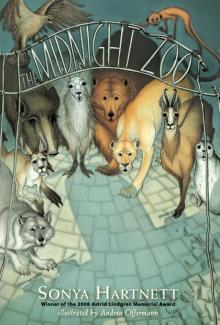 The Midnight Zoo
The Midnight Zoo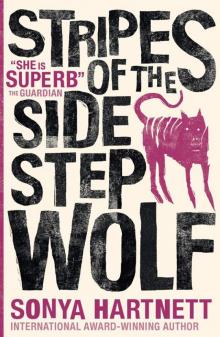 Stripes of the Sidestep Wolf
Stripes of the Sidestep Wolf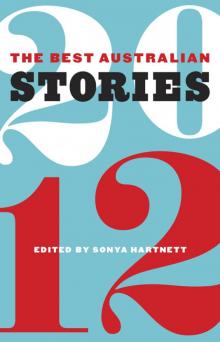 The Best Australian Stories 2012
The Best Australian Stories 2012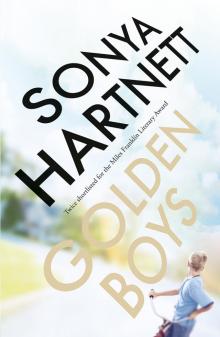 Golden Boys
Golden Boys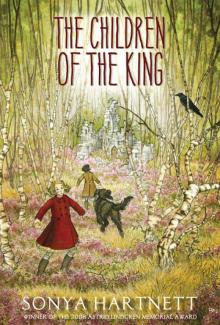 The Children of the King
The Children of the King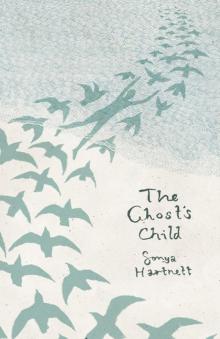 The Ghost's Child
The Ghost's Child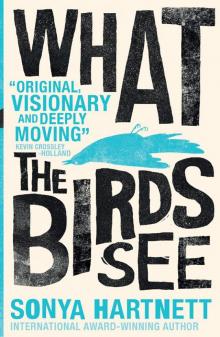 What the Birds See
What the Birds See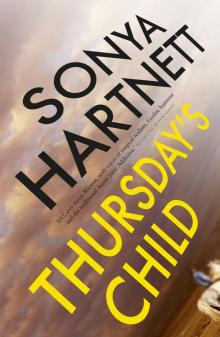 Thursday's Child
Thursday's Child